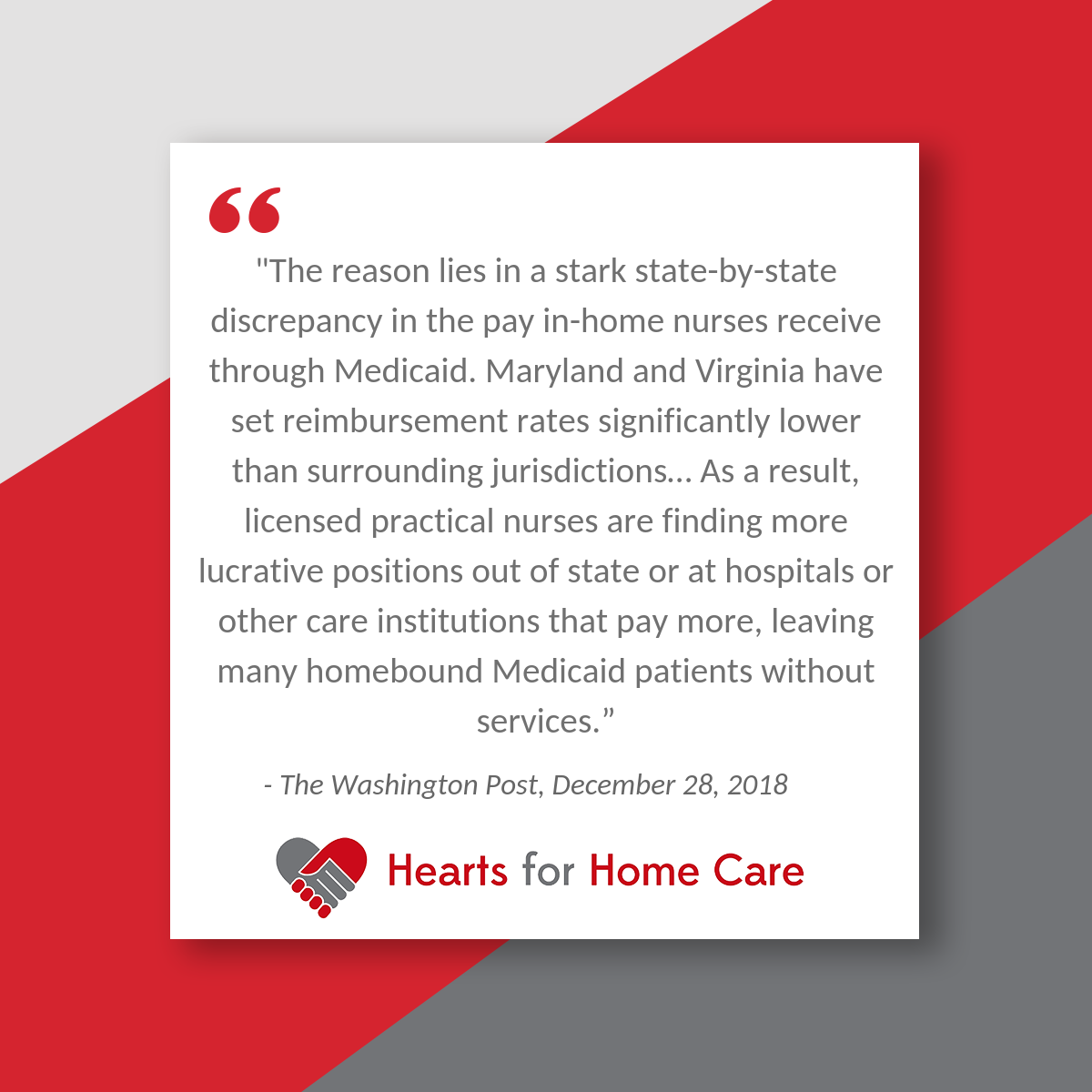
We know the struggles families can face with home care: The call-outs and missed shifts, the lack of sleep, the caregivers who are like family but can’t afford to make their own ends meet, and the frustration that comes when you or your loved one can’t access the care that is deemed medically necessary. We also know the value and impact that sharing our voices has.
Recently, home care advocates have made the news for their efforts across the country. Specifically, on December 28, the Washington Post covered the impact that providers and parents are having in driving public awareness of the struggles that Marylanders and Virginians are having in accessing the skilled nursing home care their families need.
Washington Post reporter Tara Bahrampour points to low reimbursement rates in both states as the major issue contributing to families’ struggles—
“The reason lies in a stark state-by-state discrepancy in the pay in-home nurses receive through Medicaid. Maryland and Virginia have set reimbursement rates significantly lower than surrounding jurisdictions…As a result, licensed practical nurses [LPNs] are finding more lucrative positions out of state or at hospitals or other care institutions that pay more, leaving many homebound Medicaid patients without services.”
Hearts for Home Care has been leading the charge in Maryland, where a coalition of home care clients, parents, providers, and other advocates are pushing for a 25 percent increase for skilled home nursing services. Advocates say that this increase—half of which would have to come from state coffers—would serve to alleviate families’ inability to access care an average of 17 percent of the time, as reported by the state’s Department of Health. Hearts for Home Care advocate and BAYADA Home Health Care director Shannon Gahs says:
“Maryland is failing its citizens who have significant medical disabilities. Failing to provide care 17 percent of the time not only creates a dangerous situation for the person who relies on that care—it harms his or her family. Parents are calling out of work and losing the sleep they need to stay healthy to support their family. They’re doing everything they can to keep their family members safe, but this is not how it is supposed to be. We have to do better.”
In comparison, neighboring Delaware found that shifts are missed 7 percent of the time. There, the state reimburses providers at a rate approximately 30 percent higher for LPN home care services.
In California, Governor Jerry Brown recently proposed a whopping 50 percent wage increase for home care nurses—a move that advocates have pushed for over the past several years. As with families across the country, Californians who require skilled nursing home care have been struggling to get nursing care for their loved ones. Advocates report that under Medi-Cal—the state’s health care system for low income and disabled Californians—rates have not been addressed in 18 years.
While both the Maryland and California proposals are still pending, home care advocates have been successful in driving public and legislative awareness of low reimbursement rates and the impact on families’ access across the country in recent years. Most recently, the home care industry has seen reimbursement rate increases in Rhode Island, Massachusetts, South Carolina, and New Jersey among other states. It starts with educating legislators through advocacy via any number of channels: Traditional and social media, letters, phone calls, meetings, and more.
While advocacy can seem like an intimidating activity to many who do not yet engage in it, it’s important that we share our advocacy wins with the home care and health care community at-large. As illustrated in recent news, when we band together to leverage our voices in unison, big changes can happen. It’s important to take that first step and make your message heard on behalf of the millions of Americans that rely on home care.
To learn more about how you can engage in home care advocacy, visit www.heartsforhomecare.com or email [email protected] today.







